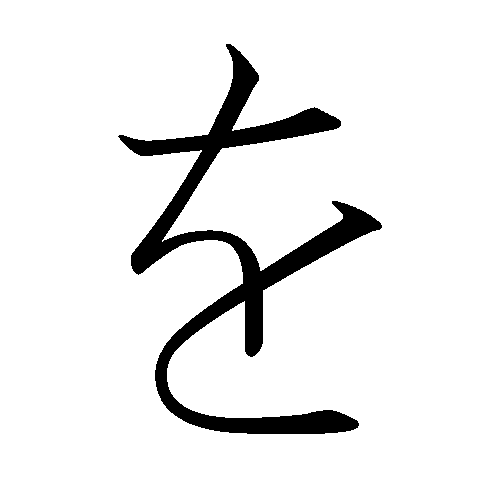Japanese Tips! : を is NOT pronounced as “wo”!
First things first: Time to get my aspiring linguist hat on! ┗(`ー´)┓
…
All right, here’s my story:
Since I’ve been studying a lot about phonology, and preparing Japanese-speech related things, I’ve come across this strange thing I’ve been doing when I speak Japanese. I actually pronounce the grammatical particle “を” as “wo”.
Undoubtedly, many of you have seen manga titles, such as Takaya Natsuki’s Tsubasa wo Motsu Mono, and probably thought that this mysterious thingy-I-don’t-know-what was pronounced as “wo”. I mean, it is romanized that way with some romanization systems, right?
WELL, YOU’RE DEAD WRONG.
This particle is actually read as “o”. NOT “WO”. IT’S “O”.
(Note that this only applies for STANDARD JAPANESE. Some dialects still pronounce this as “wo”. However, if you go to Tokyo and speak in this way, people are going to correct you while thinking you sound a bit odd at the same time.)
Now, I’ve been aware of this for most of the time that I’ve been studying Japanese. And despite this, I’ve still been pronouncing it wrong. Why, you ask? I BLAME ANISONG ROMANIZATIONS.
You see, the way I learned a lot of my Japanese in my formative years was through anime…and through anime songs. In the interest of learning my favorite songs, I would go to sites like animelyrics.com, and the romaji provided would usually use the romanization “wo”. During this time, I was in the camp that said “object particle wo NEEDS to be be romanized with a “w” to differentiate it from everything else!”, and I was pretty gung-ho about this.
And then just recently, I came to realize that this was having a drastic effect on my spoken Japanese. A rather negative one, at that.
I was doing some spoken practice with my Japanese teacher recently, until one day, she said, “STOP.” I asked her what was the matter, and she said, “You’re pronouncing particle “o” as “wo”. Did you realize that?” And then I realized – OH CRAP, SHE’S RIGHT.
I really am embarrassed about this, since I take my accent, and the act of improving it very seriously. In order for you, the reader, not to make this mistake, heed my cautionary tale.
を is not “wo”, it’s “o”. Never forget. Never make this mistake again. Tell all your friends. Be smarter and more observant than I was.
Well, that’s that. I’m going to go read the Wikipedia article about Japanese phonology and depress myself about voiceless bilabial fricatives and other sounds I can’t produce with my vocal tract. GAHH.
言語学ができる人、助けてくれーーーーヽ(´□`。)ノ

Hey, I just stumbled upon your blog when searching for Japanese raw manga and found some very interesting facts and tips in your blog!
By the way, I started learning Japanese ten years ago, I graduated in 2009 (I studied Japanology) and I’ve been trying to keep my level since then by exchainging emails in Japanese, watching anime and dorama, reading manga and so on…
The reason why I’m leaving a comment is your statement about depressing yourself with voiceless bilabial fricatives (; I had to follow the link to figure out what exactly this is. Since I’m German I also checked the German Wikipedia site and found something that may help you pronouncing it. In German, it’s called a “Suppenblaselaut”, which means the sound you make when you blow hot soup to cool it down (; I tried it and was very pleased that it’s exactly how I pronounce the “f” in ふ – so I hope this will help you ^-^”
頑張って日本語を勉強してね!
And please continue posting here! I also like shoujo manga best and I always like discovering manga I didn’t know before (;
And sorry for the ranting ^^”
Hello! Sorry I didn’t get to this comment sooner!
I was having some difficulty with it at the time but now I can actually say it properly. Yay Japanese friends! XD
But yeah, sometimes when I’m lazy it does come out as an /f/ and I need to keep working on that… =_=
日本人です。
日本語の「を」は、最近では「お」と発音するのが正しいと一般的には言われていますが、実際には「O」と発音する人と「WO」と発音する人が混在しているのが現状です。
私自身も「を」は「WO」と発音すると小さい時に教わりました。ちなみに私は関西の出身です。ただ、関西が「を」を「WO」と発音する地域かと言えばそうではなくて、関西の中でも「O」と「WO」が混在しており、全国規模で明確な地域分けができないと思われます。
また、私自身も「を」の前に来る単語によっては「O」に近い音になったり、「WO」になったり、「O」と「WO」の中間の音になったりしています。無意識にそうなっているので、厳密な文法的ルールは分かりません。
極端な話、「O」でも「WO」でもどちらでも構わないというのが正しいかと思います。というのも、日本人は基本的に諸外国語のように「音」に関してはあまり厳密に拘らないところがあります。それは、日本語の音素が他の言語に比べて少ないところや、「ん」の発音は実際には「n」と「m」と「ng」と3種類ありますが、表記上は全部「ん」となっており、これは私も含めて日本人全体が3種類の発音を無意識で使い分けているけれど、全部「ん」と一つに認識しているということからも窺えるかと思います。
他に日本語の発音に関して言えば、「う」は「U」の発音ではなく、軽く「U」と発音する感じですね。前後の音によっては「U」の音が脱落して子音だけになることもあります。
例えば、「助けて(たすけて)」は、「ta su ke te」ではなく「tas ke te」という発音に近いです。
昔は日本語ももっと音素が多く、近世までは「か(ka)」と「くゎ(kwa)」の区別がありましたし、「YE(ゑ)」や「YI(ゐ)」の発音も存在していました。日本語の変遷を調べてみるのも面白いかもしれませんね。
コメントをしてくれて本当にありがとうございました!このトピックは少し難しいですが、日本語で頑張りたいと思います!文法と言葉の間違いがあれば、本当に申し訳ありません。
英語では、日本の音韻学についての研究が少ないので、日本語の先生の言う通りに「を」は「O」とずっと思いますた。しかも、私の日本語の先生の全員は神奈川県の人でしたので、関西や関西弁のことがよく知りません。
日本の言語学研究者には、「O」と「WO」の使いの違いについての興味をもつ方がいるのかよく知りません。日本の記事によったら、そういうの歴史言語学の研究があると思いますが、北米の研究者はそんなに興味を持っていないので、英語で翻訳してありません。おそらく、「O」と「WO」の発音の違いのスペクトラムがあって、住む場所やソシオエコノミックスが変わったら、「O」と「WO」の発音も変わるかもしれません。例えば、日本では、関西と関東の日本語は結構変わっていますね。イントネーションと言葉は違うので、外国人はよく分からない時が多いです (笑)。しかし、アメリカの英語には、地方の違いがあっても、言葉は大体同じです。でも、シアトルとテクサスの発音を比べたら、同じ事を言っても、発音が全然違っています。
「O」と 「WO」の違いの原因は、ルールが有るはずです。でも、私の日本語は言語学の記事をわかるレベルではないので無理です (笑)
「ん」の3種類の話だったら、明らかなルールありますよ!英語でnasal place assimilationと呼ばれています。
例えば、
Nasal [n] —-> [m] / ____ [labial consonant] (such as /b/) (example: /ham.ba:.gu/)
Nasal [n] —-> [ŋ] / _____[velar consonant] (such as /k/) (example: /haŋ.ko:/)
Nasal [n] stays as [n] in all other environments. (example: /han.tai/)
I’ve done this with an older form of phonological analysis, but normally you would approach this from the perspective of autosegmental phonology, which the WordPress comment system cannot accurately represent (笑)
まあ、日本語ではきっとこういうの研究あるはずです。できれば、チェックしてみてください!